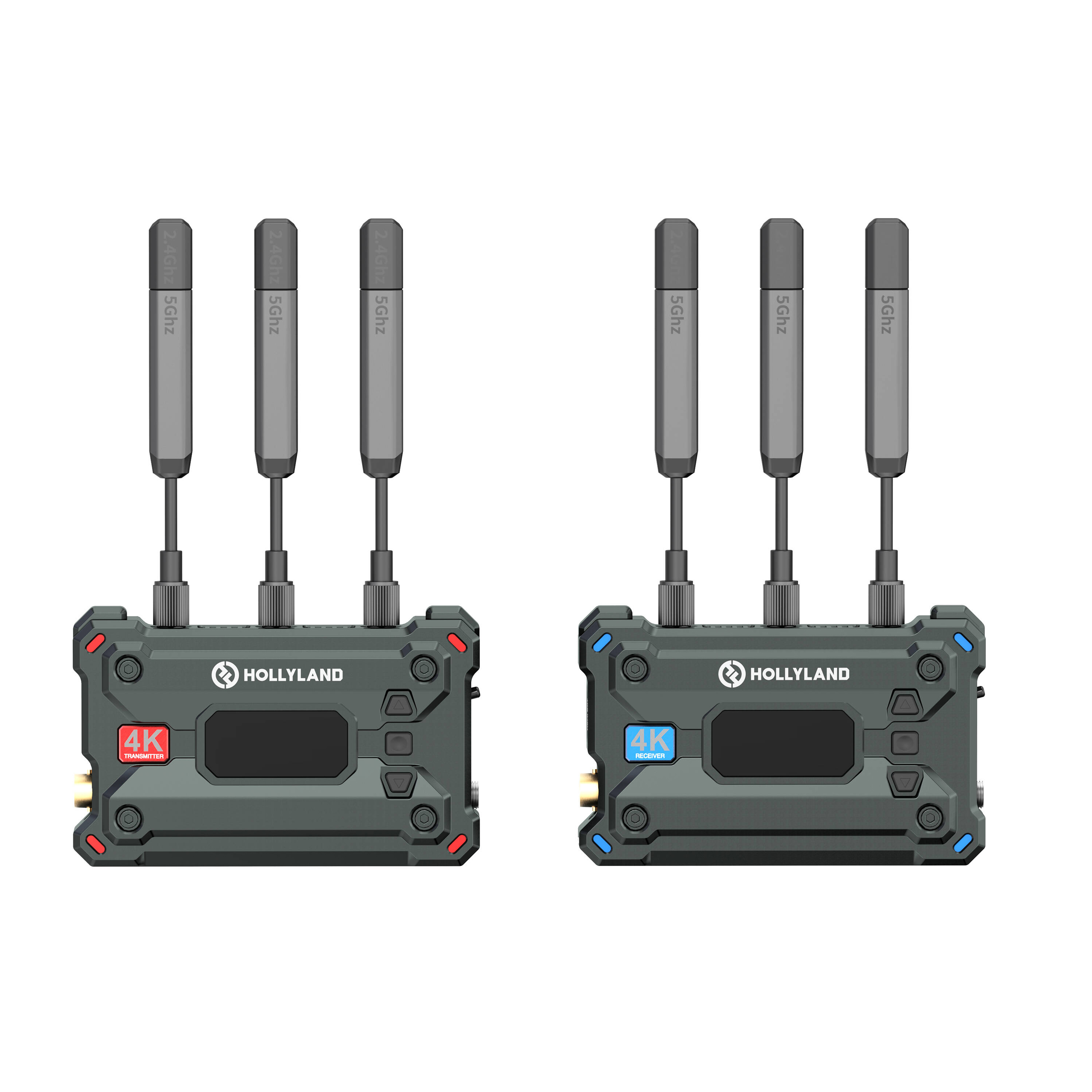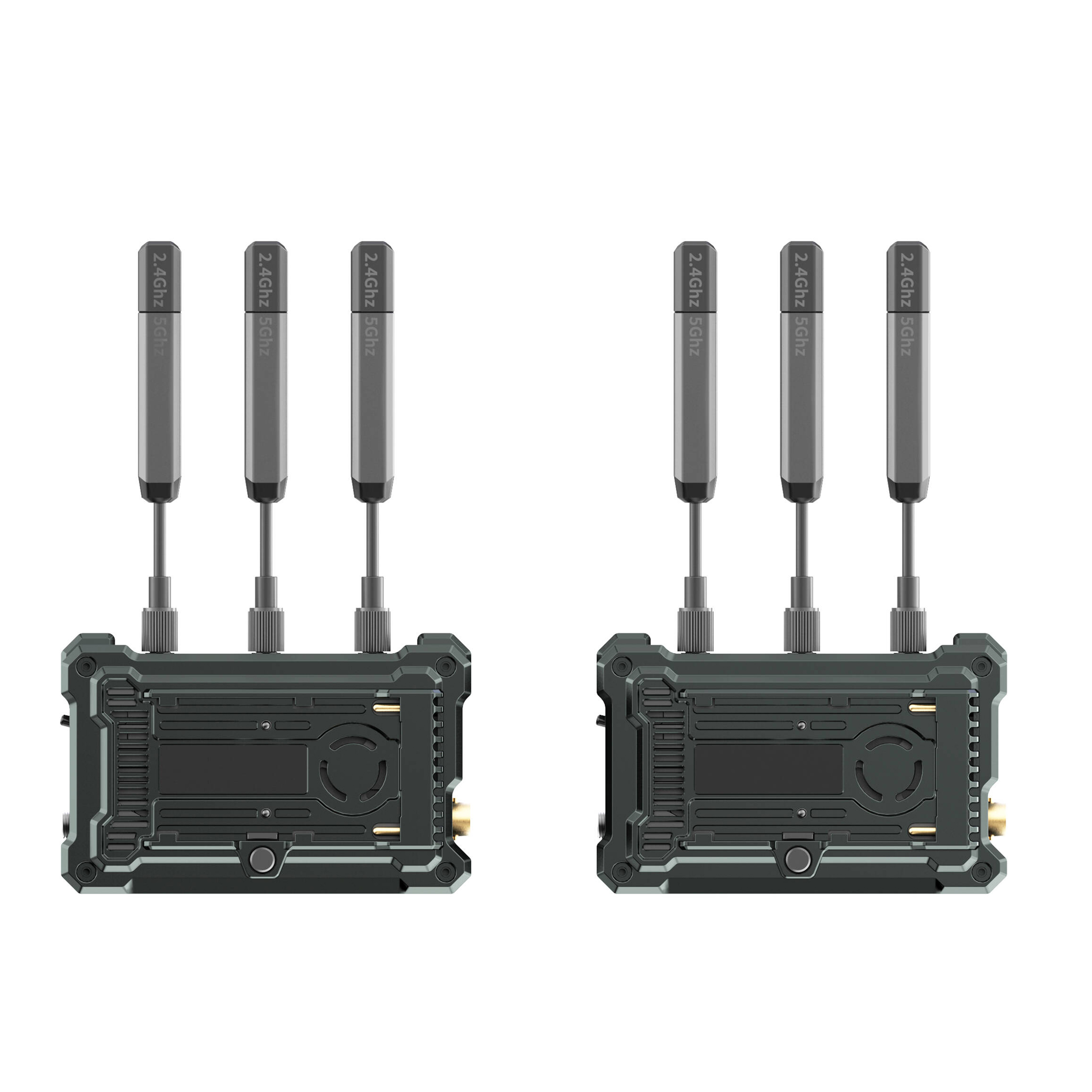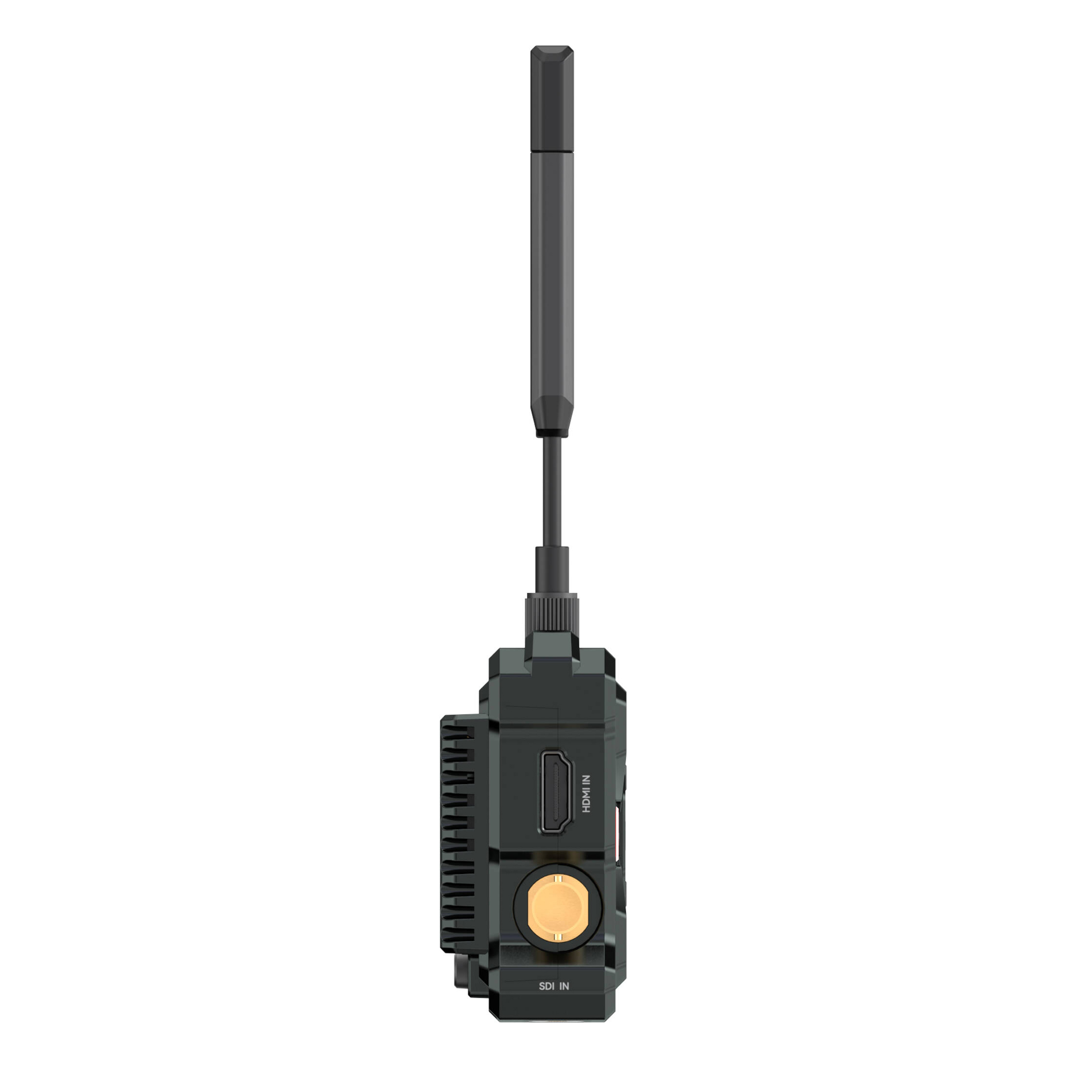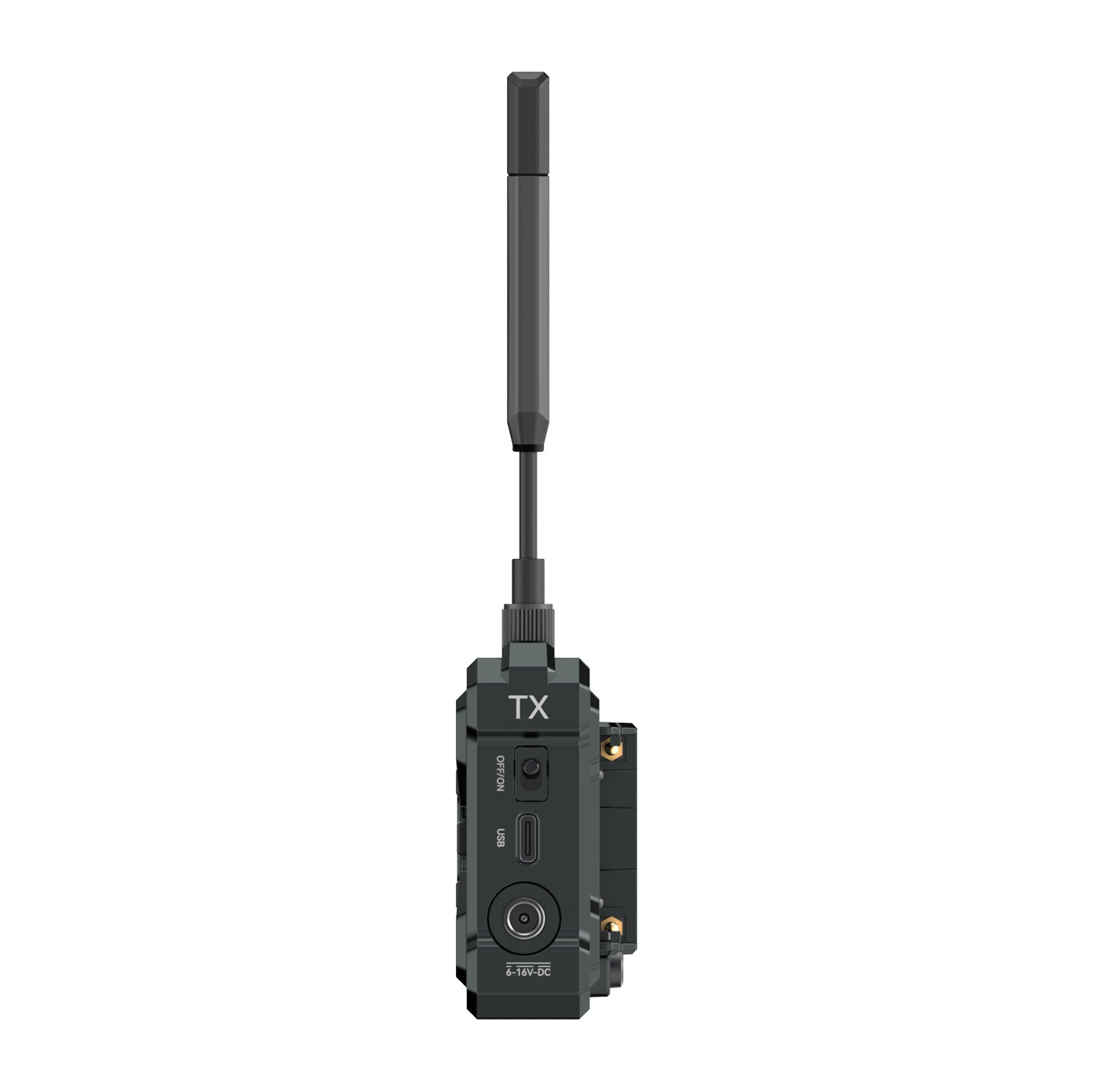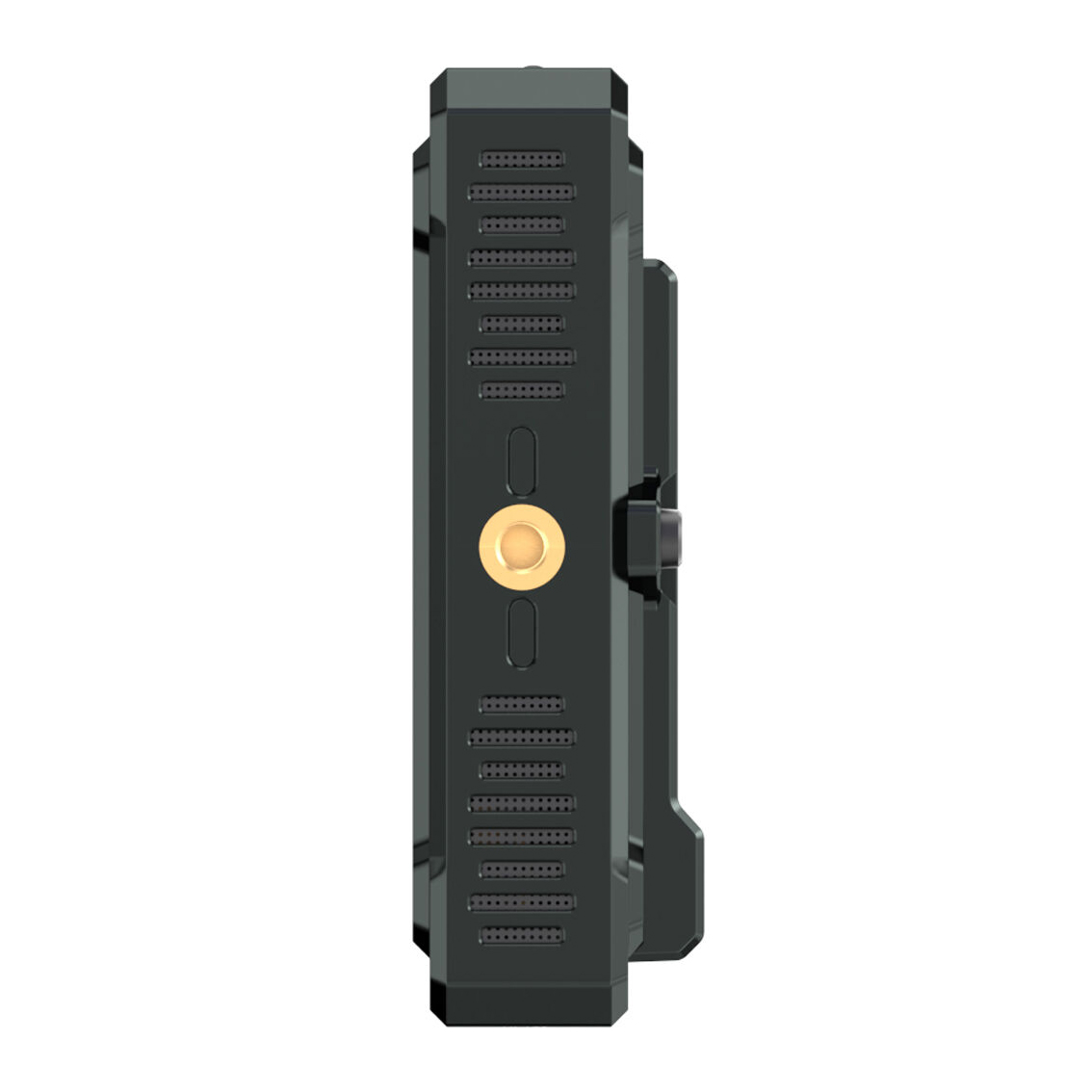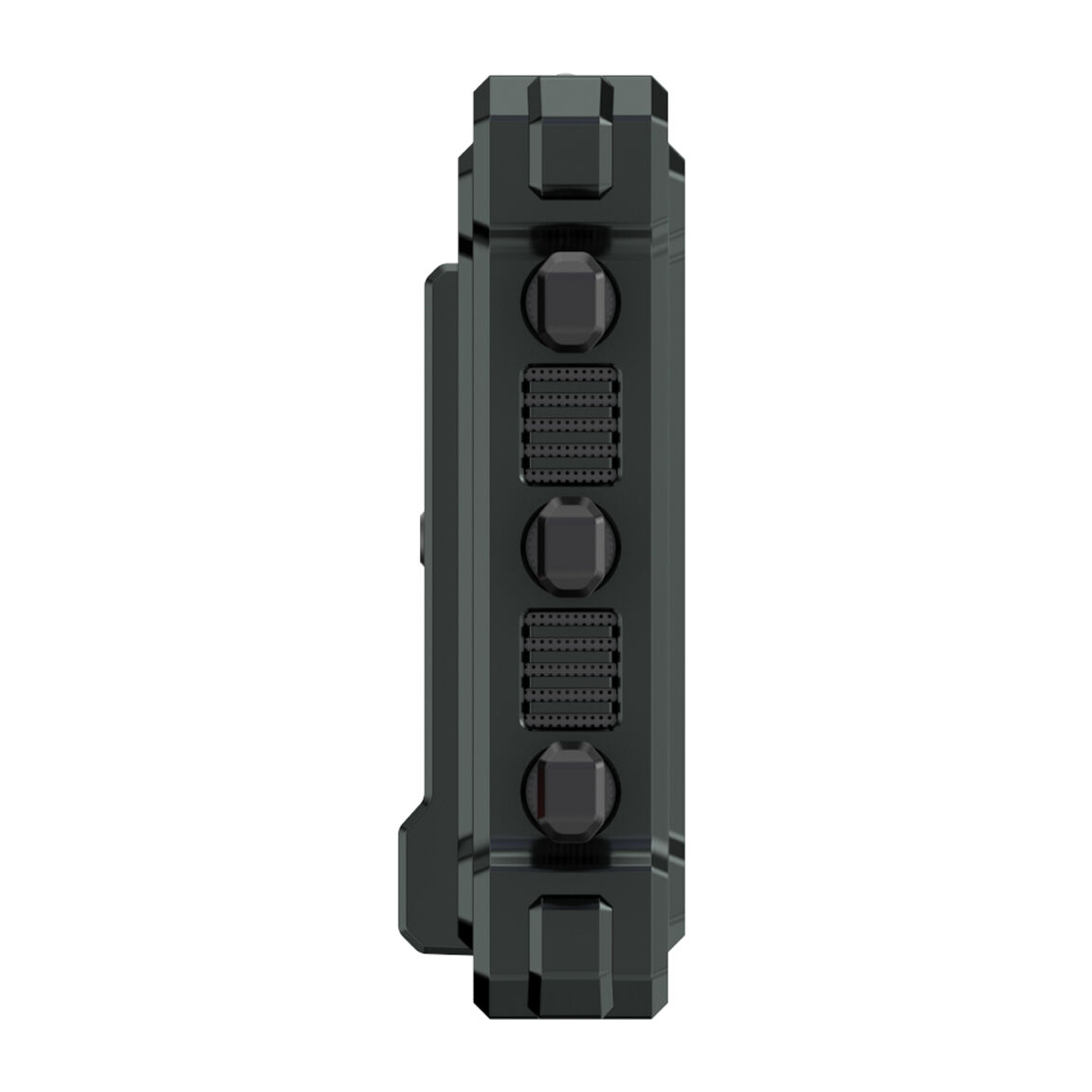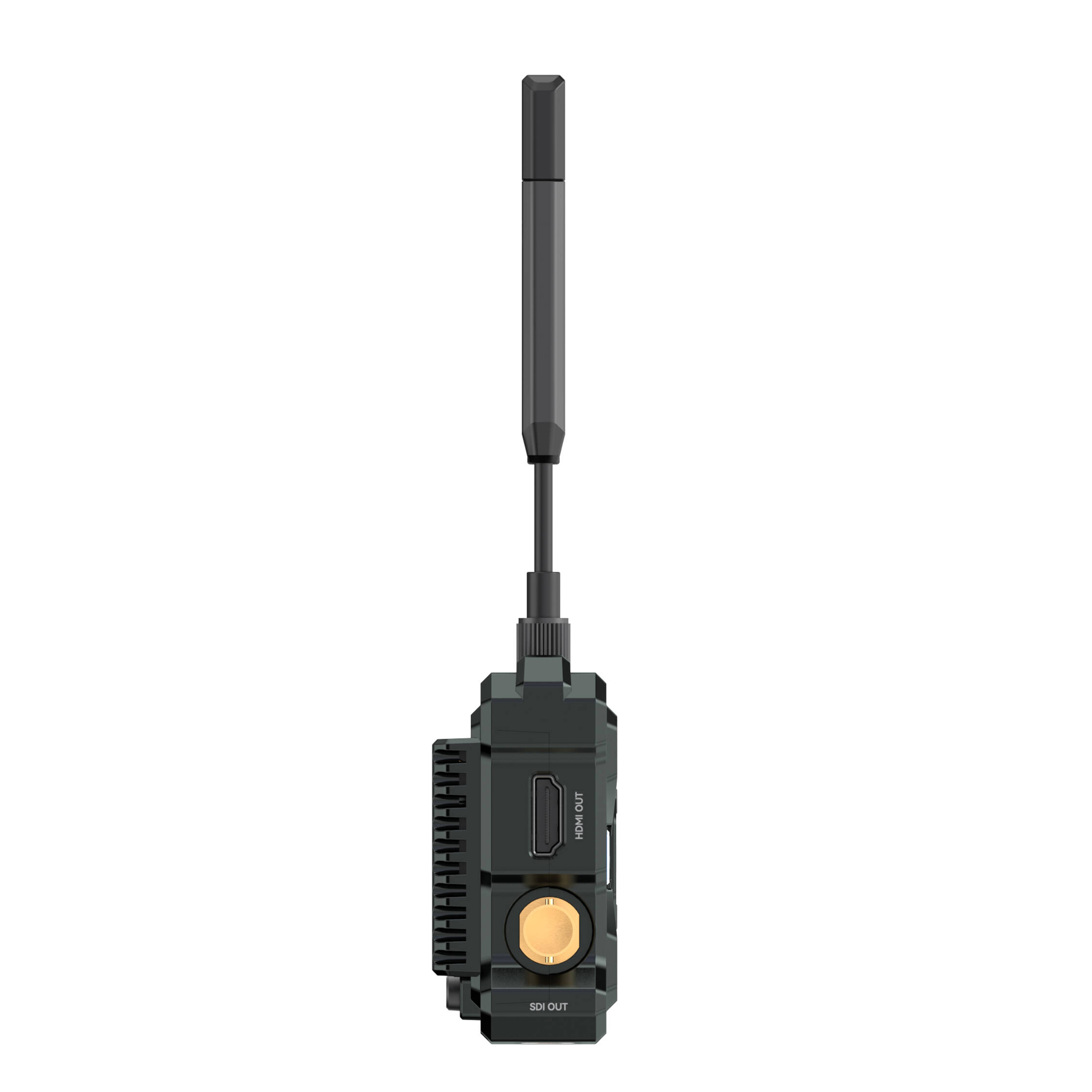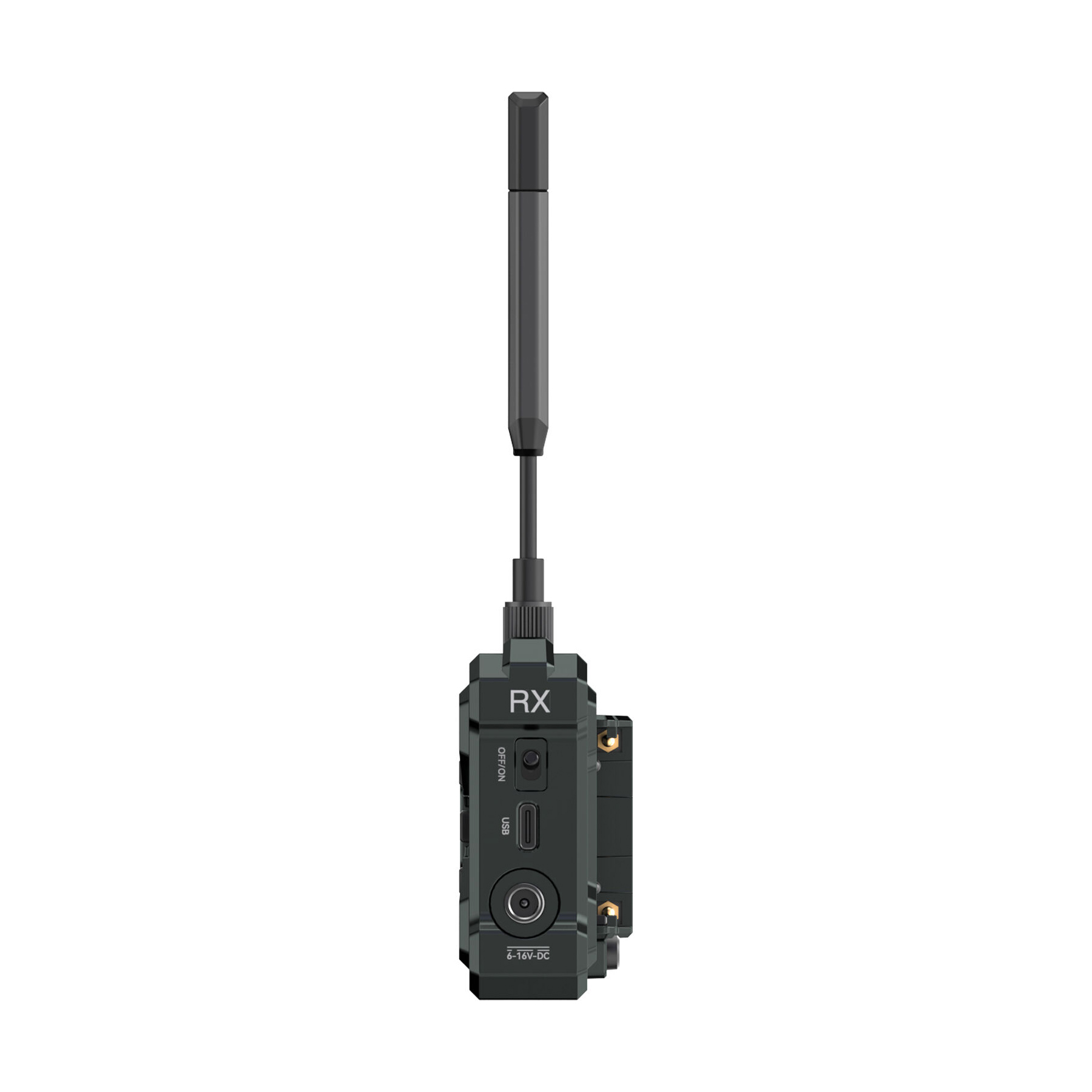| Port | DC Input: 2.0mm Core Socket HDMI Input: HDMI 1.4b SDI Input: 3G SDI USB-C: USB 2.0 OTG Antenna: SMA Male |
| Power Supply | Battery Voltage Range: 6.8 – 8.4V DC Voltage Range: 6 – 16V |
| Power Consumption | < 11W |
| Net Weight | 207g |
| Dimensions | L × W × H: 112 × 71.2 × 34.1mm |
| Input/Output Format | HDMI Input 720p50/59.94/60 1080i50/59.94/60 1080p23.98/24/25/29.97/30 1080p50/59.94/60 3840*2160 30/25/24/29.97/23.98 SDI Input 1080p60/59.94/50 1080i60/59.94/50 1080p30/29.97/25/24/23.98 720p60/59.94/50 1080psf23.98/24 1080psf25/29.97/30 |
| Operating Frequency | 5 GHz Frequency Band 5.150 – 5.250 GHz 5.250 – 5.350 GHz 5.470 – 5.725 GHz 5.725 – 5.850 GHz 2.4 GHz Frequency Band 2.412 – 2.484 GHz |
| Transmit Power | < 23 dBm |
| Latency | 50ms |
| Bandwidth | 20 MHz (Broadcast: 40 MHz) |
| Temperature | -10 – 45℃ (working) -40 – 60℃ (storage) |
Hollyland Pyro S – 4K HDMI/SDI Wireless Video Transmission System
Pyro S is a groundbreaking addition to the Hollyland Pyro series lineup, which redefines wireless video transmission. Pyro S supports HDMI and SDI input/output and can transmit to up to four receivers simultaneously, with a range of up to 1,300ft (400m) and minimal latency of just 50ms. Pyro S uses advanced Auto Dual-Band Hopping (ADH) technology to ensure reliable transmission and features selectable modes for your real-world shooting needs. Lighter and more durable than traditional models, Pyro S’s magnesium alloy shell makes it easier to carry and handle. It’s ideal for multi-user monitoring in dynamic shooting scenarios, such as film production, live events, and ENG/EFP applications.
Description
Long Distance, High Quality
The Pyro S Wi-Fi broadcast technology enables one transmitter to connect to four receivers with stable signals, offering more flexibility when additional monitoring needs emerge on set. When Broadcast mode is activated, the transmitter can transmit signals to at most four receivers, and the line-of-sight range reaches 650′. When Broadcast mode is deactivated, the transmitter can transmit signals to at most two receivers and two mobile devices, and the line-of-sight range extends up to 1300′.
Strong Signal Strength
At a stable transmission range of up to 1300′, the Pyro S features latency as low as 50ms. Compared to the Mars series, whose transmission range extends at the cost of image quality and latency, the Pyro S excels with increased transmission distance while preserving video quality and minimizing latency. The transmitter/receiver combo also provides two modes for users to tip the balance between image quality and latency, with HD mode for better image quality with bitrate at up to 12 Mb/s and Smooth mode for a dynamic change in latency.
Crisp and Sharp Images
With up to 4K30 transmission capabilities via HDMI and 1080p60 via SDI, the Pyro S transmits images with superior clarity, detail, and realism, making it a great choice for professional applications like broadcast and filmmaking.
USB Video Class
UVC allows seamless compatibility with a wide range of devices, such as computers, without requiring additional drivers or software installations. This plug-and-play feature simplifies setup and operation, making it convenient for users in various scenarios, such as live streaming and video conferencing.
RTMP
Input your wireless key and connect a network card to stream video directly to live platforms like Zoom, YouTube, Twitch, and TikTok.
Smart Channel Scan
Upon startup, Pyro S automatically chooses a high-quality frequency channel, optimizing the user experience from the outset. Additionally, users can activate the smart channel scan function on the receiver to view real-time feedback on the frequency status, thus ensuring an uninterrupted and reliable experience.
Easy Setup
The Pyro S supports preset grouping and pairing, eliminating the need for users to repetitively and manually set up the transmitter and receivers.
Continuous Power, Multiple Options
In addition to DC input and NP-F batteries, the Pyro S also supports a USB-C power supply (5-12V). A USB power supply option provides convenience, especially when using stabilizers, as it eliminates the need for larger NP-F batteries, reducing overall weight and enhancing maneuverability.



